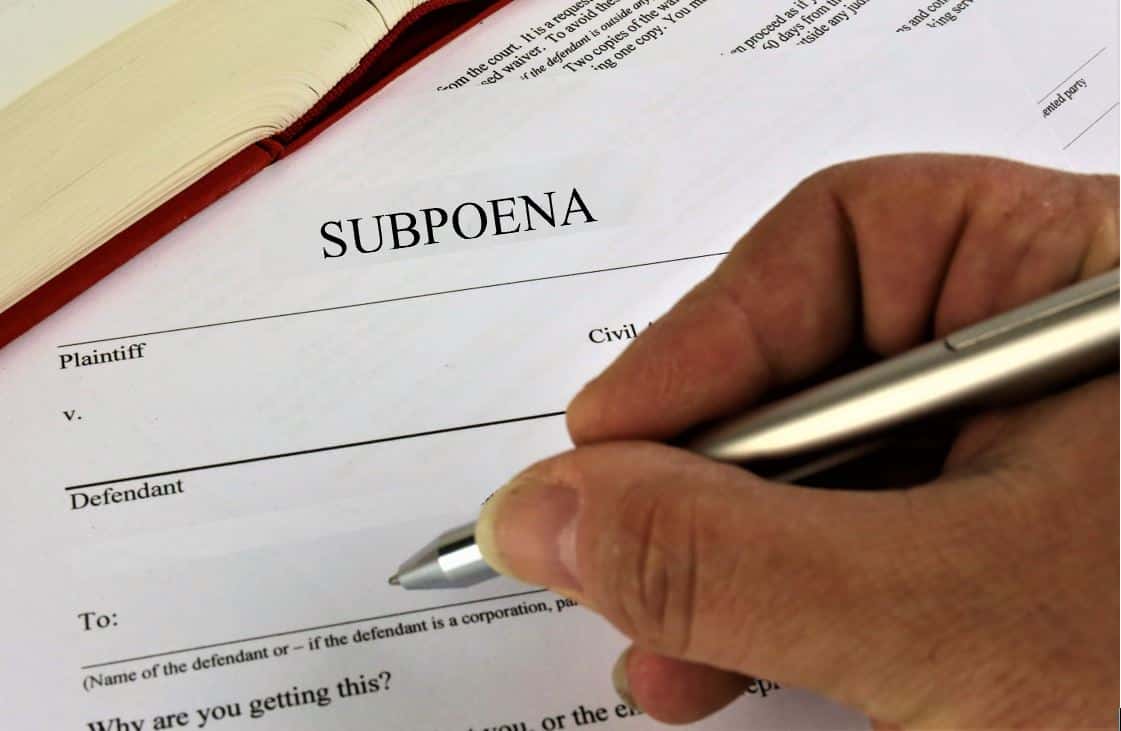
How to: domesticating a foreign subpoena in another state.
POV: It’s a dark and stormy Thursday afternoon and you’re a young, bright-eyed, paralegal working for the best personal injury firm that’s ever existed when the founding partner comes to you with a rather unique ask; conduct some research on how to domesticate a foreign subpoena in another state. He hands you one of the thickest books you’ve ever seen, and you accept this new challenge with genuine enthusiasm, although, you can’t help but notice the devious smile that slowly creeps across his face as he slips quietly back into his office. Your newfound enthusiasm is quickly replaced with dread. This formidable task grows all the more daunting as you clutch the 1,359-page book on Georgia’s Civil Procedure tightly against your chest and contemplate your life choices that have led up to this moment.
If you can relate in any way to the story above, then you have come to the right place. Welcome! As the young, bright-eyed, paralegal who was assigned the aforementioned task, and as a result is now an expert on the topic, I’m here to share my knowledge with the world!
While the thought of having a foreign subpoena for discovery (i.e., a deposition) domesticated in another state may seem daunting as first, the process is actually quite simple. Depending on which state the case is in and which state your witness is in, you may be able to rely on the Uniform Interstate Depositions and Discovery Act (UIDDA) for guidance which makes the process the same for the 30+ states that have adopted it.
The example scenario is as follows: you’re working on a case and having trouble tracking down a witness that you need to depose, a tale as old as time. After doing some digging, you discover that the witness has, since the time of filing the initial lawsuit, moved out-of-state to Tennessee. You take a deep breath and login to your trusty Westlaw account to embark on a journey where you’ll hopefully learn something new: how to domesticate and serve a foreign subpoena in Tennessee. Your research will likely lead you to Tennessee Code § 24-9-203 which states that “a party may submit a foreign subpoena to a clerk of courts in the county in which discovery is sought to be conducted in this state.” Simply put, once you’ve successfully obtained your subpoena from the Georgia court where your lawsuit is pending you will mail the subpoena, now file stamped, to the appropriate clerk of courts in the Tennessee county where the witness resides. From there, your successfully domesticated foreign subpoena can be served on your witness by the Sheriff or by a private process server who understands the rules of civil procedure in Tennessee.
If you have a case that resides in a state that has adopted the UIDDA, but a witness that resides in a state that hasn’t adopted the Act, the process will look a little different. Once you’ve put on your thinking cap, you’ll have to initiate this arduous process with an Order to Take Out of State Deposition, a Commission to Take Out of State Deposition, a Stipulation to Take Out of State Deposition, or a Letter Rogatory. Next, you will have to request that a subpoena be issued from the court in the state where your witness resides by either submitting an application, filing a petition, by providing documents to the court or having an attorney file a petition. After you’ve successfully jumped through all the necessary hoops your subpoena should be ready to be served! At this point, you will need to consult with the state in which your case originated and a process server to determine who is authorized to serve the subpoena. Suffice to say, the exact process will vary depending on which states are involved so it is always best to comply with an individual state’s process as closely as possible to ensure that your subpoena is successfully issued, domesticated, and served on your witness in a timely manner.
Pro tip: When in doubt, reach out! Contact the clerk of courts office in the county where you are trying to have your subpoena domesticated and pick their brains on how to comply with their state’s rules and regulations. So go forth and utilize your resources, work smarter not harder, and tell no one of your dastardly plans to become the smartest person in the room. Good luck!






